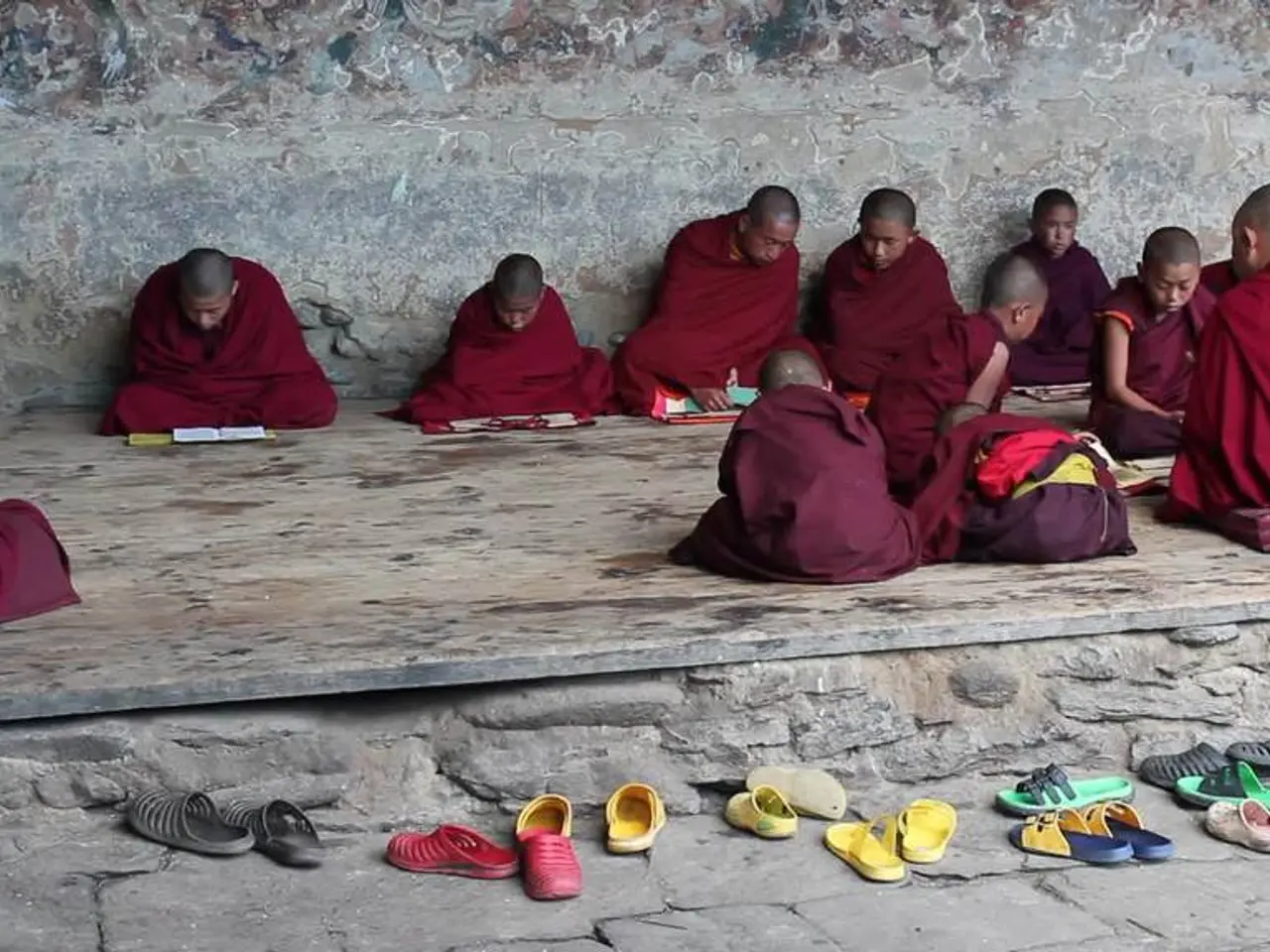UP Congress Accusations Disputed by Ramkamal Das over Voter ID Irregularities Among Saints
A heated exchange has erupted between the Uttar Pradesh Congress and the saints of the Ram Janaki Math in Varanasi, over a voter list allegedly showing over 50 individuals registered as the sons of one person – Ramkamal Das. This controversy, known as the Ramkamal Das voter ID controversy, has sparked a debate about the intersection of religious customs and electoral law.
At the heart of the issue is the Guru-Shishya tradition, a centuries-old practice in Hindu monastic life. In this tradition, disciples list their guru's name as their father's name on official documents, such as voter IDs and Aadhaar cards. This practice, which acknowledges the guru as the spiritual 'father', is legally recognized by the Government of India since 2016.
The Ramkamal Das voter list for the 2023 Municipal Corporation election shows over 50 names with "Ramkamal Das" as the father's name. However, these names belong to disciples and sadhus living within the Ram Janaki Math premises, an old Hindu monastic centre. This fact has been confirmed by India Today reporters who found that B 24/19, the location mentioned in the records, is not a residential building but the Ram Janaki Math.
The All India Sant Samiti, a body representing several Hindu religious organisations, has condemned the controversy, calling it an attack on Sanatan Hindu traditions. The Samiti has threatened legal action against those portraying the custom as fraudulent. Swami Jitendranand Saraswati, the National Organisation General Secretary, has accused political actors of dragging religious institutions into electoral disputes for partisan gain.
In response, the saints performed a Buddhi Shuddhi Puja, a ritual aimed at purifying the intellect, for those spreading baseless allegations. The UP Congress, on the other hand, claims this is evidence of voter fraud in Prime Minister Narendra Modi's constituency. Political opponents might leverage the Ramkamal Das voter ID controversy to demand deeper scrutiny of voter records, particularly in politically significant constituencies like Varanasi.
The Election Commission could consider issuing explanatory notes or public statements when such issues arise, clarifying the legitimacy of practices that may appear unusual but are legally sanctioned. Greater cultural literacy within political discourse could prevent controversies like the Ramkamal Das voter ID controversy. Unless cultural practices are explained and contextualised, they risk being weaponised in political battles.
Moving forward, greater collaboration between religious institutions and electoral authorities could ensure that legitimate traditions are respected while maintaining the integrity of voter records. This would help in fostering a more harmonious relationship between religion and politics, ensuring that age-old traditions are not undermined by modern administrative systems.
- The Ramkamal Das voter ID controversy, which revolves around the Guru-Shishya tradition in Hindu monastic life, has led to a discussion about the legitimacy of long-standing cultural practices in policy-and-legislation, particularly within the context of general-news and politics.
- The intersection of religious customs and electoral law, as demonstrated by the Ramkamal Das voter ID controversy, underscores the need for increased cultural literacy in political discourse and clear explanatory notes from the Election Commission, to prevent the misuse of legitimate traditions in electoral disputes.








